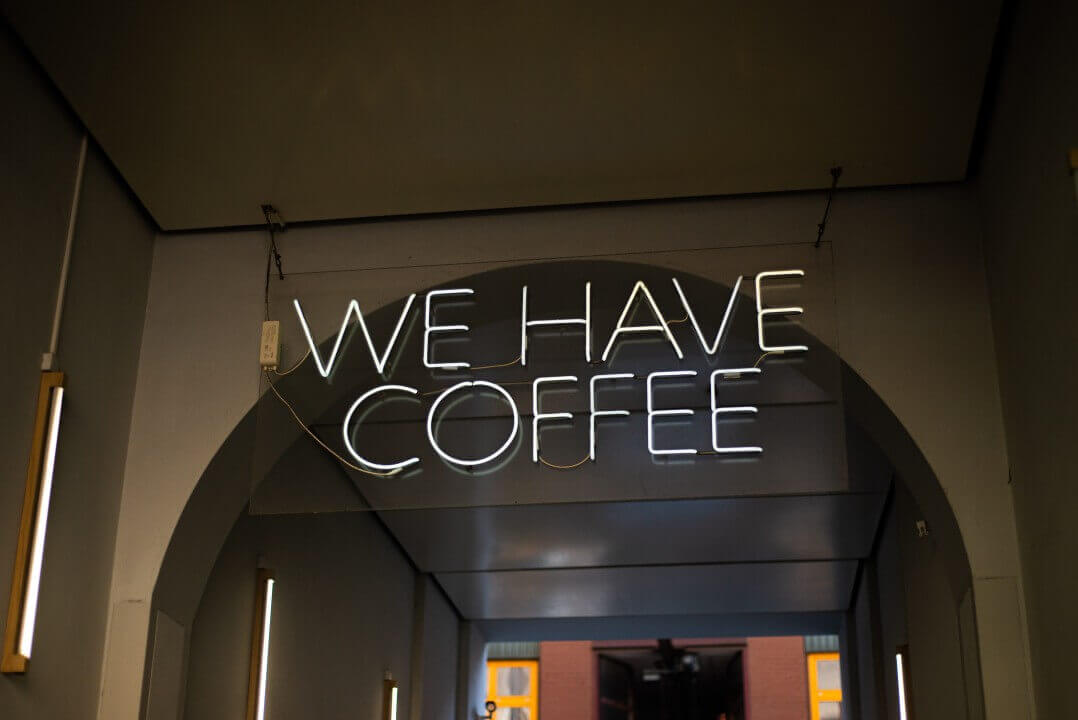Origins
The 6:39 train from Shrewsbury to London Euston is a picturesque one. You can watch the long shadows of trees getting shorter, as the early morning sun rises; notice rather more than a few sheep roaming close to the Welsh border; and of course, get a glimpse of the Wrekin, the most easterly of the Shropshire hills.
But what you leave behind is more than a fantastically preserved Tudor town; with castle and abbey, a plethora of churches, and myriad jaunty, oak-timbered buildings littered about the place. Shrewsbury would also be undersold as the region's foremost shopping and foodie destination, nestled with equal charm as Ludlow to the south, and Chester to the north, along the wealthy wool trading routes between England and Wales.
More than that, along with many other things left insufficiently expressed – such as the town's meandering river loop, hosting the century-and-a-half old Pengwern Boat Club and the imposing battlements of Shrewsbury School; the famous Quarry park and the Anglo-Japanese garden that became the legacy of royal gardener Percy Thrower; and the iconic ‘English' and ‘Welsh' bridges permitting entry to either country from the town's nestled hilltop – my hometown Shrewsbury is also a treasure trove of independent coffee shops.
Independence
But however compelling, this article is not actually a sales pitch for Shrewsbury. Rather, it is the setting for a lengthy reinsurance analogy anew: one which begins with me sitting, rather bewildered, in one of Shrewsbury's friendliest independent coffee shops.
Why bewildered? Because outside the window, I saw passers-by carrying single-use cups (one for another article!) indicating recent purchases from a large coffee shop chain.
The temerity, thought I. Though messrs Starbucks, Costa, Caffè Nero and Pret a Manger can all be found in Shrewsbury – and a Gregg's too, I'll confess – they are somewhat hard to find amongst the explosion of independent local coffee establishments lurking on every street corner; each promising the allure of caffeine and a strange version of milk to suit everyone.
But I began to ask myself why, amidst such an exciting gamut of hot liquid experiences, so many of these individuals had shunned a distinctive, local provider of their favourite morning cuppa in favour of the bland repetition of a brew they could find practically anywhere. Who where these people? Presumably tourists, and surely not locals? But perhaps that didn't make sense either, unless these tourists were so overwhelmed by the splendidness of their newfound destination, that a strong dose of familiar and boring was needed to wash it all down.
My obsession with reinsurance, which plays constant accompaniment to my daily thoughts, was soon to contribute to this discussion.
Isn't it rather like cedents using the same big brokers, year after year?
Is coffee, like reinsurance, a product for which an unexpected surprise, for the sake of variety, just isn't worth the risk? The comfort blanket they don't want to mess with, that makes them afraid to try the new and unfamiliar?
Sipping my own coffee, as my brain started to grind through these arguments, I began to wonder whether the independent coffee shops, at least in some customer segments, had any chance to thrive at all. Much like the challenger brokers, they faced a substantial uphill struggle, not unlike my own journey up to Shrewsbury Railway Station at 6am this morning.
But here I am, on the train successfully, penning a rallying cry for cedents who want to break out of their rinse and repeat purchases; brokers who want to escape the drudgery of chain coffee shops; and underwriters who, with the right distribution, can do a whole lot more than count beans.
Buying coffee and drinking reinsurance – scratch that and reverse it, if you want, as those five words work in almost any order – are activities at the heart of our industry's history. So let's take a closer look at the factors determining who we rely on for these vital rituals.
Familiarity
Why do you go to a familiar chain in an unfamiliar town? Because you know what you like, and you like what you know. You can grab a coffee quickly with no surprises, and besides, you probably didn't have time to survey the alternatives – you're travelling, after all.
Unfamiliarity is of course what holds us back from trying a new coffee shop, especially when we are in a hurry. We won't know the products or how the process works: not even whether the front door is a push or a pull. Do they take card and cash? How long will it take for them to make my order? Will I have to choose whether I want the Ethiopian or Peruvian beans, and pretend I know the difference?
Perhaps that explains away the tourist behaviour. But what about the locals? Why go to Starbucks, rather than supporting and building relationships with local businesses?
Even on the doorstep of their most familiar purchases, it seems reinsurance buyers find themselves defaulting to the big chains, to intermediate business they should know inside out. But the truth is, they often don't know their portfolios that well at all.
For most buyers, there's barely time to even think about a broker RFP: you're in a constant flurry, lost in the months of back-and-forth that accompany the arduous task of submission data preparation and validation. For each purchase, the process is set by last year's broker, who called you up in advance. They know what to do – or at least, how to repeat what they did for you last year – and because they took your data through an almost indecipherable array of transformations before going to market, your data isn't yours any more - you've lost control.
You're not quite sure what a venti skinny oat cappuccino con caramel is, but that's what you ordered once, long ago, and you're afraid to change, for fear of setting off your day – or your reinsurance season – to the wrong start.
It would make a world of difference if reinsurance buyers could get their data organised in less than a week, instead of months. So that, like the growing number of Supercede customers, they too would have the time and head space to learn the difference between a mocha, a matcha and a macchiato. It's time to go to market early and confidently, with a clear understanding of what you need; to skip the morning queues overwhelming the best baristas; and to avoid a last-minute scramble to choose the option best-suited to you.
Loyalty
We've discussed familiarity, and you've probably also spent some time getting familiar with Supercede (if not, there's still time!). So let's continue our analysis of intermediary selection factors with another shot of coffee magic: loyalty.
In coffee shops, loyalty comes partly in the form of caffeine, as our brains start to imagine our usual hot watering hole as the world's only source of addictive wake-up-juice. It takes as little as the distant sight of a well-known coffee chain's logo to send shivers of temptation through our neurons, in a survival-instinct-turned-habit compelled by the power of branding. It's no wonder that so many independent shops give out loyalty cards, in an attempt to break the habit – or rather, fixate it somewhere else.
Is the reinsurance version of loyalty any nobler? While it's true that brokers have in the past been rewarded with decades of renewal business for going above and beyond – such as one broker's safeguarding of a cedent's assets through an entire world war – all too often, reinsurance loyalty is enforced through a threat to turn off the insurance taps. There's already another article dedicated to the awkward topic of broker leverage, but in short: the inflows and outflows of (re)insurance premium are negotiated with the political ferocity of international trade missions.
Part of the insistence on loyalty may be attributable to a relatively level playing field for reinsurance market access. Few underwriters would refuse to do business with a particular broker, particularly if they come bearing a desirable cedent, making the choice of broker sometimes negligible in this respect. In fact, many markets would prefer to diversify their sources of broker business, in the face of heavily concentrated portfolios with the big two or three.
It's true that some brokers will argue they specialise in ‘hard to place' business, or that they can source specialty capacity thanks to a few special relationships. But few reinsurance markets or products come to mind as being controlled by a single broker, or requiring that broker to operate at massive scale. In fact, in Shrewsbury's coffee landscape, it tends to be the smallest establishments that offer the most niche products, like matcha lattes: a tactic familiar to challenger brokers looking to build market share in emerging product lines, rather than taking on their larger rivals' core revenue streams.
Even the prestigious title of Lloyd's broker, which used to see syndicate access limited to those afforded such status, is now so widely borne by local and wholesale brokers that it can only in rare cases be considered a differentiator. This, paired with a relatively consistent rate of commission across the market – that understandably few brokers wish to challenge – risks making ‘relationships' the sole surviving differentiator for brokers: costing each of them a fortune in salaries to support the elite broker merry-go-round, and creating a precarious strategic positioning for each intermediary.
When differentiators appear few and far between, strategy theorists remind us to call upon an old friend: innovation.
Innovation
Ah, that old chestnut. But yes, innovation and technology have sizable roles to play in changing the fortunes of brokers and coffee shops alike. Not only externally – in offering a better experience for their customers – but also, when it comes to managing internal costs, supply chains and scalability.
Let's take the customer experience first. Most coffee shops offer a comparable experience: a large display board above the counter showing a fairly consistent array of available beverages; a long glass case displaying a more variable selection of edibles such as pastries, cakes and sandwiches; and a barista waiting – often impatiently in busy settings – to take your order, once your moment in the queue finally arrives. In more premium and specialty independent shops, you might be offered a choice of bean, too: but otherwise, like reinsurance brokers, the service is much of a muchness.
As such, innovation opportunities have broken the mould only infrequently. Typically, to gain management support, any such initiatives need to provide not only a source of competitive advantage – which sometimes fails to overcome the aforementioned pressures of familiarity and loyalty, in any case – but also, a mutual efficiency gain or cost saving.
In the world of coffee shops, a recent opportunity emerged to tackle both. It came in the form of growing consumer and producer consciousness of single-use plastics and plastic waste: precipitating a plethora of initiatives across the take-away beverage market, from branded ‘keep cups', to discounts for bringing your own reusable vessel.
Responses differed between large coffee chains – who charted their own course, building something designed for use only across their outlets (think Starbucks-branded keep cups) – and independent outlets, who either formed partnerships, or in some cases, banded together. In Shrewsbury, we saw an initiative to create ‘The Shrewsbury Cup': a reusable keep cup that served as exchangeable currency at any one of some twenty-something independent cafes, enabling customers to bring a used cup with them and replace it with a freshly cleaned one, each time they ordered a new drink from any participating coffee shop.
This divergent problem-solving approach is hardly unfamiliar to us in the reinsurance broking space. In our case, the two largest brokers have built their own placing platforms, leaving the remaining field of brokers either to partner with technology providers, or to band together in local communities. One hopes that with time, the technologies produced by at least some of these efforts will be an improvement on the status quo.
Magic Beans
Watching emerging trends in the coffee shop world, one wonders if there might be any other key signals for what to expect in the reinsurance market. Are there some magic beans waiting to launch us to the next level?
One example is the introduction of new glass ordering screens to the Black Sheep Coffee beneath the Leadenhall Building here in London. It's striking to see a relatively premium coffee chain – with discerning, (re)insurance industry customers no less – borrowing a technique from fast food restaurants which accelerates throughput while using novelty to compensate for the loss of personalised service. The growing presence of broker facilities in reinsurance broking, borrowed from our own fast-food insurance market, offers a not incomparable set of trade-offs for customers and providers alike.
But not all beans are magical. As part of a commitment to ‘going digital', it seems large companies in all industries felt pressure to create some kind of mobile app, however unclear the problem they were trying to solve. Perhaps least successful in the coffee shop domain was the Starbucks UK app, which claims to provide convenience but has earned a stunning 1.4 out of 5 stars across nearly 5,000 reviews. Meanwhile, on the (re)insurance side we have seen brokers produce more apps than the total number of user reviews received.
Not that we should lose hope. There have also been successes, where mobile engagement strategies have been redirected towards solving real problems for their customers. The most popular of these has been the digital loyalty card: an app that earns customers a free coffee in the same way as a physical loyalty card, and wins the provider pride of place on their client's mobile homescreen. Is this the proof our own industry needs, that stamping bits of paper needn't be our only way forward?
Trustworthiness
But back to the question at hand (and we are getting toward the end now, I promise): why do we avoid the challengers and default to the big, boring brands? Especially in a reinsurance broker landscape which is as rich in compelling, challenger intermediary offerings as Shrewsbury is in trendy, independent coffee shops.
Frankly, it is because the buyers trust the familiar brands to get the job done. A job that involves on one hand, preparing a hot elixir we would be willing to pour into our bodies, or on the other, reinsurance deals on which we are willing to stake our companies. A job that matters most at the busiest of times: commutes and renewal seasons alike. A job that requires real expertise: either from those we know to have been well-trained through the strength of a brand's talent development process; or from those who themselves are known to carry so much expertise in their own right, that they have been able to strike out into pastures new, beyond their former brand's boundaries.
We thus have a right to proceed cautiously when it comes to choosing to whom it is we afford these responsibilities, and not least because of the hefty reward we offer to them in exchange. Those that have performed the role for us before have a natural advantage in having already earned our trust: meanwhile, the burden of proof sits with those who have not yet had the opportunity to show us what they can do.
So how should the challengers gain that critical opportunity to win our trust? Must they open at strange times when their competitors do not? Provide beverages, like matcha lattes, that don't fit the mould of the corporate cookie-cutter? Go to the ends of the earth to service the client need yet unserviced or still underserviced? Offer conveniences and innovations that cannot be found amongst their larger competitors?
In short, the answer is yes: to at least several of the above, if not many others unlisted. Otherwise, the only strategy that remains is to pay through the nose for personal relationships; and to hope that these continue to matter, in an age when specialty coffee – and perhaps soon, reinsurance – can be ordered at the touch of a screen.


